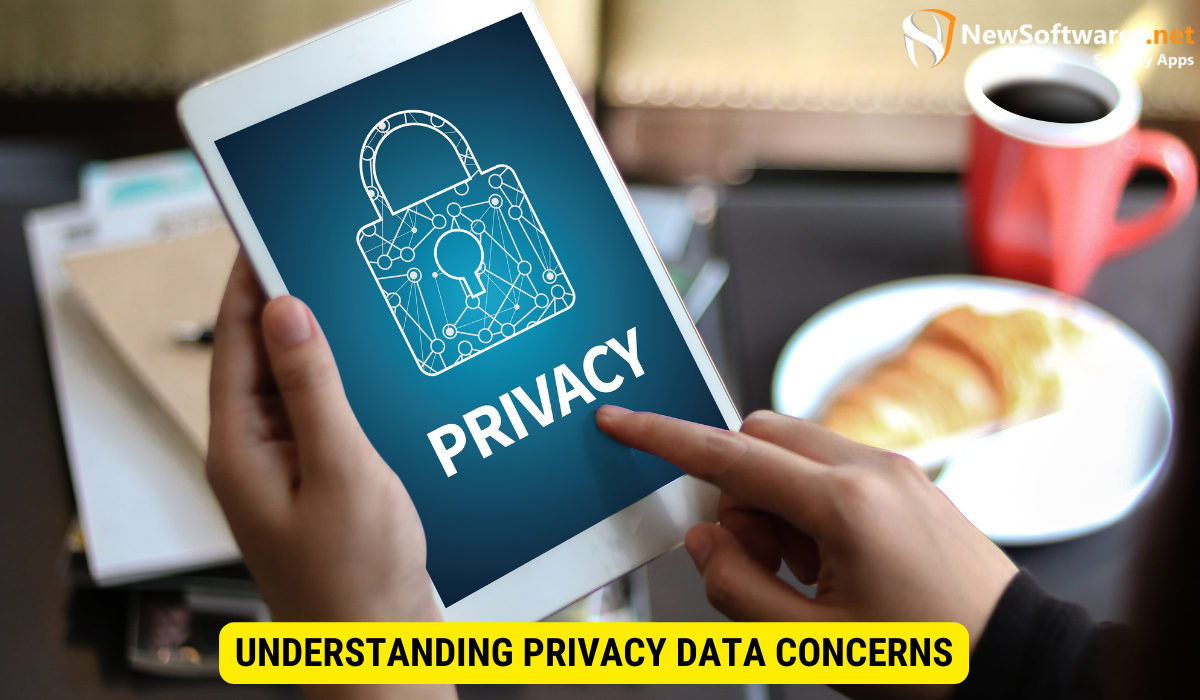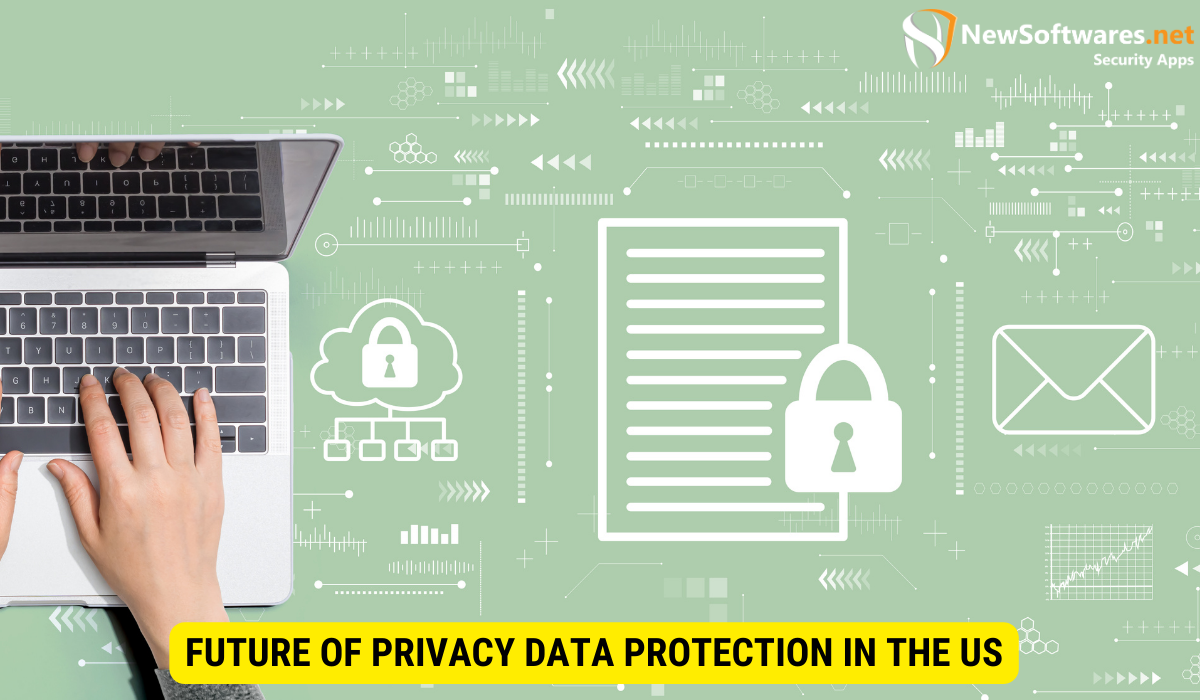The United States has taken significant steps to address privacy data concerns. In an increasingly digital world, where personal information is often collected and shared, it has become crucial to establish effective strategies to protect individuals’ privacy. Together, we will delve into the understanding of privacy data concerns, the US approach to addressing them, key strategies in tackling privacy data concerns, challenges faced, and the future of privacy data protection in the US.
Understanding Privacy Data Concerns

Privacy data is a term that encompasses any information that can be linked to an individual, either directly or indirectly. It includes personal identifiers such as names, addresses, phone numbers, social security numbers, financial records, and digital data like IP addresses and online behaviors.
Regarding privacy data concerns, there are several reasons why they matter. First and foremost, individuals have the right to control their personal information and ensure its confidentiality. In an increasingly digital world, where personal data is constantly being collected and shared, individuals must control how their information is used.
Privacy data breaches are a significant source of apprehension since they can potentially result in identity theft, fraudulent activities, and various malicious endeavors. When personal information ends up in the possession of unauthorized individuals, it can expose them to scams, illicit financial transactions, and even harm their reputation. Consequently, safeguarding private data is imperative to avert these adverse repercussions.
Furthermore, businesses and organizations must manage customer data carefully to preserve trust and adhere to legal obligations. Customers rely on companies to safeguard their personal information, and any mishandling of this data can lead to a loss of trust and damage a company’s reputation. Additionally, there are legal requirements that businesses must fulfill concerning the collection, storage, and utilization of private data. Failure to adhere to these regulations can result in substantial penalties and legal repercussions.
Ensuring the protection of privacy data is not solely a matter of legal compliance and ethical responsibility but also a means to establish and nurture strong customer relationships. When individuals believe their privacy is respected and safeguarded, they are more inclined to interact with businesses and share their information. This trust is vital for businesses offering personalized services, enhancing customer experiences, and cultivating enduring loyalty.
To conclude, comprehending the significance of privacy data issues is pivotal in today’s digital era. Individuals must maintain control over their personal information, and businesses must handle customer data responsibly. By prioritizing protecting privacy data, we can defend against identity theft, fraudulent activities, and other malicious behaviors while simultaneously building trust and sustaining robust customer relationships.
The US Approach to Privacy Data Concerns
In the United States, protecting privacy data is a significant concern addressed through a combination of federal laws, regulations, and the enforcement efforts of government agencies. These measures safeguard personal information and ensure individuals’ privacy rights are respected.
Federal Laws and Regulations
One of the most significant federal laws in the US that addresses privacy data concerns is the Privacy Act of 1974. This legislation restricts how federal agencies can collect, use, and disclose personal information. It establishes a framework that promotes transparency and accountability in government entities’ handling of sensitive data.
Furthermore, the US has implemented sector-specific regulations to protect specific types of personal information. An example of such a regulation is the Health Insurance Portability and Accountability Act (HIPAA), which focuses on safeguarding medical records and ensuring the privacy and security of individuals’ health information. HIPAA sets standards for protecting sensitive medical data and requires healthcare providers and organizations to implement appropriate safeguards.
These federal laws and regulations provide a legal framework that governs the handling of privacy data in the US. They aim to balance facilitating the legitimate use of data for various purposes while protecting individuals’ privacy rights and preventing misuse.
Role of the Federal Trade Commission
The Federal Trade Commission (FTC) is a key player in enforcing privacy data protection in the United States. The FTC has been granted the authority to take action against businesses that engage in unfair or deceptive practices related to privacy data.
Through its enforcement efforts, the FTC ensures that companies are held accountable for their actions and that individuals’ privacy rights are respected. The commission has pursued legal action against numerous companies mishandling consumer data, resulting in significant fines and penalties. These actions serve as a deterrent and promote responsible data practices among businesses.
In addition to its enforcement role, the FTC also plays a crucial role in educating businesses and consumers about privacy data concerns. The commission provides guidance and resources to help organizations understand their obligations and implement best practices for data protection. It also raises awareness among consumers about their privacy rights and provides tips on protecting their personal information online.
Overall, the US approach to privacy data concerns involves a combination of federal laws, regulations, and the enforcement efforts of agencies like the FTC. These measures aim to strike a balance between facilitating the use of data for legitimate purposes while ensuring that individuals’ privacy rights are respected and protected.
Key Strategies in Tackling Privacy Data Concerns
Data Minimization
Data minimization involves limiting the collection and retention of personal information to what is necessary for legitimate business purposes. By only storing essential data, businesses minimize the risk of breaches and reduce their data storage burden. Adopting a data minimization approach helps maintain a lean data inventory and reduces potential privacy risks.
Transparency and Consent
Transparency is crucial in building trust with individuals whose data is collected. Informing users about data collection practices, how the information will be used, and obtaining their consent empowers individuals to make informed decisions about sharing their personal information. Obtaining affirmative, explicit consent ensures that individuals understand and agree to processing their data.
Security Measures
Guaranteeing the security of sensitive information is of utmost importance. This entails utilizing robust security measures such as encryption, firewalls, access controls, and routine security audits. Businesses can substantially decrease the likelihood of unauthorized entry and data breaches by dedicating resources to technology and adhering to established guidelines. Adhering to well-recognized security protocols, such as the Payment Card Industry Data Security Standard (PCI DSS), provides an additional layer of safeguarding data.
Challenges in Addressing Privacy Data Concerns
Technological Advancements
The rapid pace of technological advancements presents challenges in privacy data protection. Evolving technologies like AI(Artificial intelligence), facial recognition, and Internet of Things (IoT) devices can collect and process vast amounts of personal information. It is crucial to balance the benefits these technologies offer and the protection of individuals’ privacy rights.
International Data Transfers
In an interconnected world, cross-border data transfers are common. However, different countries have varying privacy regulations, which can complicate the transfer of personal information. The US has taken steps to facilitate such transfers while ensuring privacy data protection through mechanisms like the EU-US Privacy Shield and standard contractual clauses.
Future of Privacy Data Protection in the US

Proposed Changes in Legislation
The US is actively considering updates to privacy data protection legislation. Proposed laws, such as the Consumer Online Privacy Rights Act (COPRA) and the SAFE DATA Act, aim to enhance individuals’ control over their data and increase business transparency requirements. These legislative efforts reflect the evolving nature of privacy concerns and the need for updated frameworks.
Impact of Emerging Technologies
Emerging technologies will significantly influence the future of privacy data protection. Areas such as data analytics, machine learning, and expanding IoT devices will raise new challenges and necessitate innovative solutions. It will require continuous adaptation and collaboration between policymakers, businesses, and individuals to ensure privacy is upheld while leveraging the benefits of technology.
Key Takeaways
- Privacy data concerns encompass personal information that can be linked to individuals and are crucial for protecting privacy rights and maintaining trust.
- The US approach to privacy data concerns involves federal laws, sector-specific regulations, and the enforcement role of the FTC.
- Data minimization, transparency, consent, and robust security measures are key strategies.
- Challenges include technological advancements and facilitating international data transfers while ensuring privacy protection.
- Proposed legislative changes and the impact of emerging technologies will shape the future of privacy data protection.
Frequently Asked Questions
What is privacy data?
Privacy data refers to any information directly or indirectly linked to an individual, such as personal identifiers, financial records, or online behaviors.
How does the US protect privacy data?
The US protects privacy data through federal laws, sector-specific regulations, and the Federal Trade Commission (FTC) enforcement role.
What are some key strategies for addressing privacy data concerns?
Key strategies include data minimization, transparency, consent, and implementing robust security measures.
What challenges are faced in privacy data protection?
Challenges include technological advancements and facilitating international data transfers while ensuring privacy protection.
What is the future of privacy data protection in the US?
The future of privacy data protection in the US will be shaped by proposed legislative changes and the impact of emerging technologies, requiring continuous adaptation and collaboration.
Conclusion
With its commitment to addressing privacy data concerns, the United States has made significant strides in protecting personal information. Understanding the nature of privacy data, complying with laws and regulations, and implementing key strategies are essential for businesses and individuals. However, challenges persist, particularly in the face of technological advancements and global data transfers. As the US envisions the future of privacy data protection, proposed legislation and the impact of emerging technologies will undoubtedly shape its path forward.
